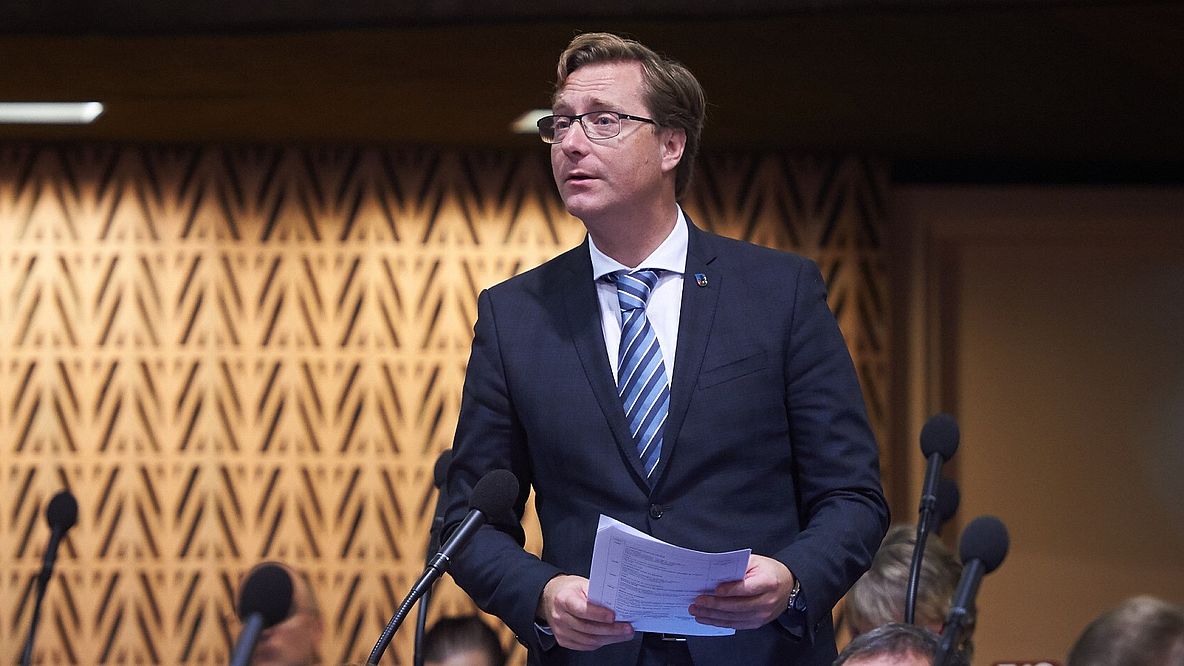Combining referendums with citizens' assemblies

Cities and municipalities should accompany the implementation of municipal referendums with randomly selected citizens' assembly. The Monitoring Committee of the Congress of Local and Regional Authorities of the Council of Europe adopted a report with a recommendation to this effect on 11 February 2021.
"Referendums are essential"
"Local referendums are indispensable to sound out the will of citizens on concrete issues that directly affect their daily lives," the report says. The general rules need to be adapted to the local context while respecting the principles of free and fair elections that also apply to referendums. Effective guidelines are therefore needed for member states to use local referendums responsibly in accordance with Council of Europe standards, in particular the European Charter of Local Self-Government, as well as international standards and best practices," said rapporteur Vladimir Prebilič from Slovenia.
Citizens' assemblies should accompany citizens' decisions
The rapporteur also pointed out the risk that referendums could be abused by populist movements to bypass, with a simple majority and after a misleading campaign, higher-ranking laws or principles whose amendment would normally require a more substantive debate and a broader consensus. He stressed that it is important that local referendums are conducted in such a way that those voting are familiar with the procedures and are able to understand the referendum question and the consequences of their vote. They should have access to quality information in order to make an informed decision.
The report calls on municipalities to make more use of citizens' assemblies and similar deliberative democracy tools to guide the implementation of local referendums to improve informed decision-making by citizens.
Oregon model
A model for this could be a citizens' council in the US state of Oregon, which was formed by sortition. Here, from 2008 - 2016, a randomly selected citizens' assembly called the Citizens Initiative Review (CIR) formulated information on referendums, which take place regularly here as in 23 other states. The CIR drafted a statement listing the most important facts and the main reasons for approving and rejecting the respective issue. This statement was included in the voting booklet that was mailed to all eligible voters in Oregon along with other voting materials. However, the procedure was discontinued in 2016 because the state parliament was not prepared to organise and finance the procedure, which until then had been organised by the organisation "Healthy Democracy" and financed from foundation funds, on a state basis.
In Switzerland, too, there is interest in this combination of deliberative and direct democracy. In the Swiss municipality of Sion, a first procedure on this took place on 9 February 2020 on the occasion of a nationwide referendum on the popular initiative "More affordable housing". Another experiment in the project called "Demoscan" took place in September 2021 in the canton of Geneva. Further procedures will follow.
Mehr Demokratie also discusses possible combinations
In the course of the Citizens' Assembly on Democracy 2019, the participants also brought the idea into play for Germany to think of citizens' assemblies and direct democracy together. A number of different variants are conceivable, for example popular initiatives to get citizens' assemblies off the ground by collecting signatures. Following the Citizens' Assembly on "Germany's Role in the World", the Federal Republic is now discussing how citizens' assemblies can be regularly and meaningfully organised to deal with federal policy issues. In a second step, a combination with direct democratic instruments will also have to be discussed. Mehr Demokratie has already put forward some initial ideas in discussion papers.
Background: The Council of Europe
The Council of Europe was founded in 1949. Today, 47 states with 820 million citizens belong to it. The Council of Europe is a forum for debate on general European issues. Its Statute provides for general cooperation between member states to promote economic and social progress.
More information
- Congress of Local and Regional Authorities: Holding referendums at local level (PDF)
- Citizens' Initiative Review in Oregon
- Demoscan project in Switzerland
- Fact sheet: Combination of citizens assemblies and direct democracy (PDF)
- Fact Sheet: Institutionalisation of sortition-based citizens assemblies (PDF)